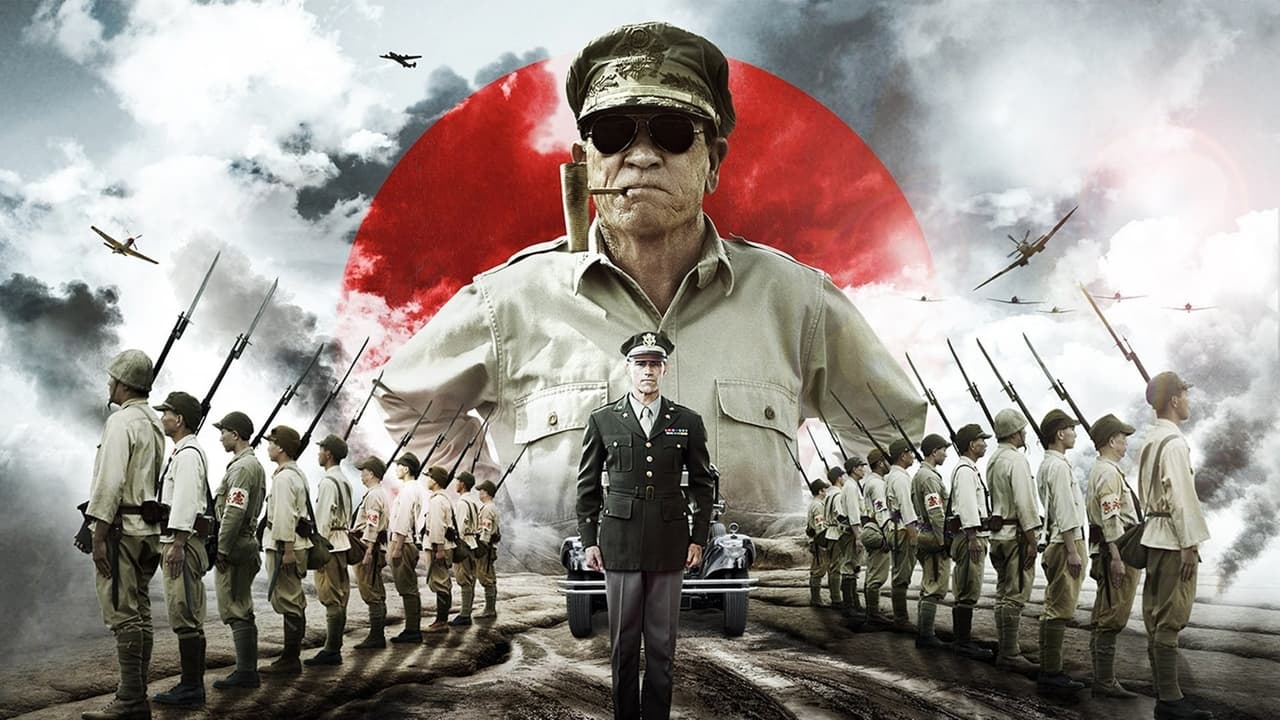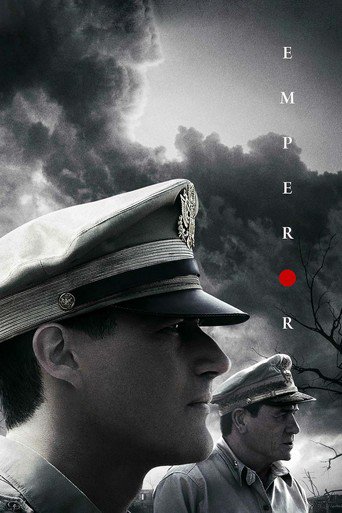Boobirt
Stylish but barely mediocre overall
Stevecorp
Don't listen to the negative reviews
Beystiman
It's fun, it's light, [but] it has a hard time when its tries to get heavy.
Phillida
Let me be very fair here, this is not the best movie in my opinion. But, this movie is fun, it has purpose and is very enjoyable to watch.
leonblackwood
Review: Although this movie did cover a very important period of American history, I did find it slightly boring and the investigation on who gave the order for Pearl Harbour seemed to go round and round in circles. Matthew Fox, who plays the lead, didn't really have a great script to work with so I can't blame his performance on his ability to act. I honestly did think that Tommy Lee Jones was going to play a bigger part in the film, but he is more of a cameo, even though his part is very important to the movie. It doesn't really pick up until the end when Tommy Lee Jones gets involved, and then it ends abruptly. In all, the director could have done much better with such a big concept. Average!Round-Up: The attention to detail throughout the movie wasn't bad and I'm glad that the director showed the situation from both points of view. Tommy Lee Jones does stand out from the rest and his performance and professionalism was noticed, but Matthew Fox just seemed one toned and pretty stiff. You do have to remember throughout the movie is that it is based on true events so it's more based on fact than entertainment. Some of the facts were interesting but the love story seemed to be added for the audience so they wouldn't get bored of the whole investigation. Personally I found it a bit weird that a movie with these actors didn't get a big distribution, but after watching the film I couldn't imagine watching it the cinema.Budget: N/A Worldwide Gross: $4millionI recommend this movie to people who are into there war movies about a guy trying to find out if an emperor should get charged for starting Pearl Harbour. 3/10
Gary Kramer
Great acting from most of the cast, and well filmed. The sets of bombed Tokyo a shocking in their desolation and you really get a feel for "surviving".Despite the fact that the film is based on actual events, this is not a docudrama. Many liberties are taken with the facts so don't watch this film looking for education. It's a real shame that the script could not mirror the actual events better. This was a turbulent time, and important decision were still being made. The true story would probably have been every bit as good as what we saw, perhaps even better if it was told with care.Also, here are parts of the Japanese dialogue that just don't ring trueThe fictitious love interest of General Bonner Fellows, while somewhat intriguing, was a) not true, and b) very distracting to the main story. It's mystifying to me why this was inserted in the film except to show a one-star general being derelict in his duty. If it was to highlight the differences in culture, then it failed miserably as only hints were given.
sddavis63
Although I like Tommy Lee Jones, I have to say right off that I was not entirely convinced by Tommy Lee Jones as Douglas MacArthur. He didn't seem to work in the role for me. That was something of a distraction, probably overcome by the fact that MacArthur was not front and centre in this. That place went to General Bonner Fellers (played by Matthew Fox.) Fellers was the American general who played a key role in investigating war crimes and making recommendations on charges to MacArthur.Ostensibly, the movie deals with the question of whether Emperor Hirohito should be tried as a war criminal. There's a good consideration of both sides of that debate; the pros and cons of trying Hirohito. Based, however, on my admittedly limited knowledge of what happened in post-war Japan, though, I'm not sure that the question was as open as depicted here. My understanding has been that the Americans never intended to try Hirohito and that it was with MacArthur's open concept that Fellers made sure that his reports recommended against the idea. That aside, the movie provides an interesting glimpse into the Japanese culture of the era, the reverence the Japanese held for their Emperor and the practical difficulties that would have been created by a trial.The movie weaves some of the quasi-historical narrative around the war crimes decision with a fictional story of a past romance between Fellers and a Japanese woman named Aya, that began at a college in the United States. We see flashbacks of that relationship, and at least a part of the movie is Fellers' search for Aya in the post-war world. The impression given is that the relationship perhaps softened Fellers' attitude toward the Japanese. I wasn't entirely taken with the need for the Aya storyline. I thought there was enough in the war crimes investigation to keep the movie going without that intrusion, although I concede that Aya was a likable enough character, and I did want to find out what her fate had been.As a straight war crimes movie, this would probably get a higher rating. As it stands - 7/10.
Nozz
Caroline Glick of the Jerusalem Post remarks, in another connection, that "US officials – and journalists – like to romanticize the world's most psychopathic, evil men. Doing so helps them to justify and defend their desire to appease, rather than confront, let alone defeat, them." The attitude she describes may explain why this particular historical episode gets the big-screen treatment while Americans are wondering how mercifully to treat their various foreign enemies. EMPEROR begins with the bombing of Hiroshima and goes on to feature a speech (never rebutted) about the moral equivalence of Japanese imperialism and Western imperialism. It's hard to interpret the movie's message except as "judge not, lest ye be judged"-- a notion perhaps applicable when your enemy's thoroughly defeated, like Japan after the atom bomb, but can be dangerous when applied prematurely. Aside from all that, we have a shallow love story in which we never understand why we're supposed to take the relationship of two people from entirely different cultures so seriously; what makes them a couple is never explained although we can see they're both good-looking. And meanwhile we have army business conducted on a surprisingly informal basis. I wasn't there, but I doubt that generals, and Macarthur in particular, were so casual with their subordinate officers all the time. I guess it all rolls into a consistent message, though: that we're all the same, regardless of rank and regardless of which side we're on, so there's no point holding grudges. If it's a message for today, when the West is threatened by some violent and serious-minded enemies, I think it may be the wrong message.

